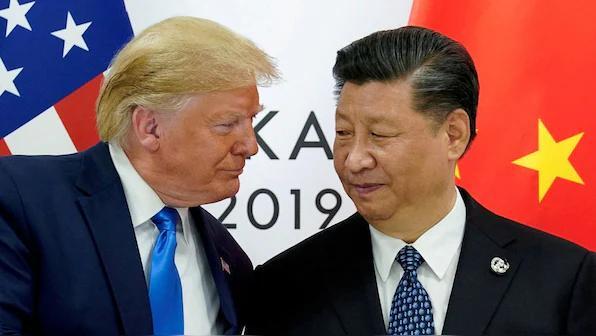
China Refuses to Join Denuclearisation Talks with US & Russia
In a recent development, China has rejected President Donald Trump’s call to include Beijing in future trilateral denuclearisation talks with the US and Russia. The Chinese Foreign Ministry Spokesperson, Guo Jiakun, stated that the expectation was “neither reasonable nor realistic” due to significant differences in nuclear capabilities between China and the US.
This decision comes at a time when tensions between the three nations have been escalating, particularly over issues such as trade, territorial disputes, and nuclear arms control. The US and Russia have been engaged in talks to reduce their nuclear arsenals, with the goal of achieving a world free from nuclear weapons.
President Trump had previously expressed his willingness to include China in the discussions, citing the country’s growing nuclear capabilities and the need for a comprehensive approach to denuclearisation. However, China has made it clear that it is unwilling to participate in talks that do not take into account its own unique circumstances and nuclear capabilities.
China’s rejection of the invitation has been met with disappointment by the US and Russia, who had hoped to involve Beijing in the negotiations. The US had argued that China’s participation would be essential in addressing the growing threat of nuclear weapons, particularly in the Asia-Pacific region.
However, China has maintained that its nuclear capabilities are significantly smaller than those of the US and Russia, and that it would not be reasonable to expect Beijing to enter into discussions on an equal footing with the two superpowers. According to the Stockholm International Peace Research Institute (SIPRI), China’s nuclear arsenal is estimated to be around 280 warheads, compared to over 3,000 warheads possessed by the US and over 3,700 warheads possessed by Russia.
China’s reluctance to participate in denuclearisation talks is also seen as a result of its concerns over the potential consequences of such agreements. The country is wary of being pressured into making concessions on its nuclear capabilities, particularly in the context of a rapidly changing regional security landscape.
The South China Sea, for instance, has seen increased tensions between China and its neighbors, including the US, over issues such as territorial claims and naval patrols. China has been accused of expanding its military presence in the region, which has led to concerns over the potential for conflict.
Furthermore, China’s growing economic and military influence in the region has raised concerns over its long-term ambitions, including the potential for a nuclear-armed China. The US and its allies have been working to counterbalance China’s growing power, which has led to increased tensions and military build-up in the region.
In conclusion, China’s refusal to join denuclearisation talks with the US and Russia is a significant development in the ongoing negotiations. While the US and Russia have expressed disappointment over China’s decision, Beijing has maintained that its nuclear capabilities are not comparable to those of the two superpowers.
As tensions continue to escalate between the three nations, it remains to be seen whether China’s rejection of the invitation will impact the progress of the talks. However, it is clear that the issue of denuclearisation is complex and multifaceted, and that any agreements will need to take into account the unique circumstances and concerns of each nation involved.



